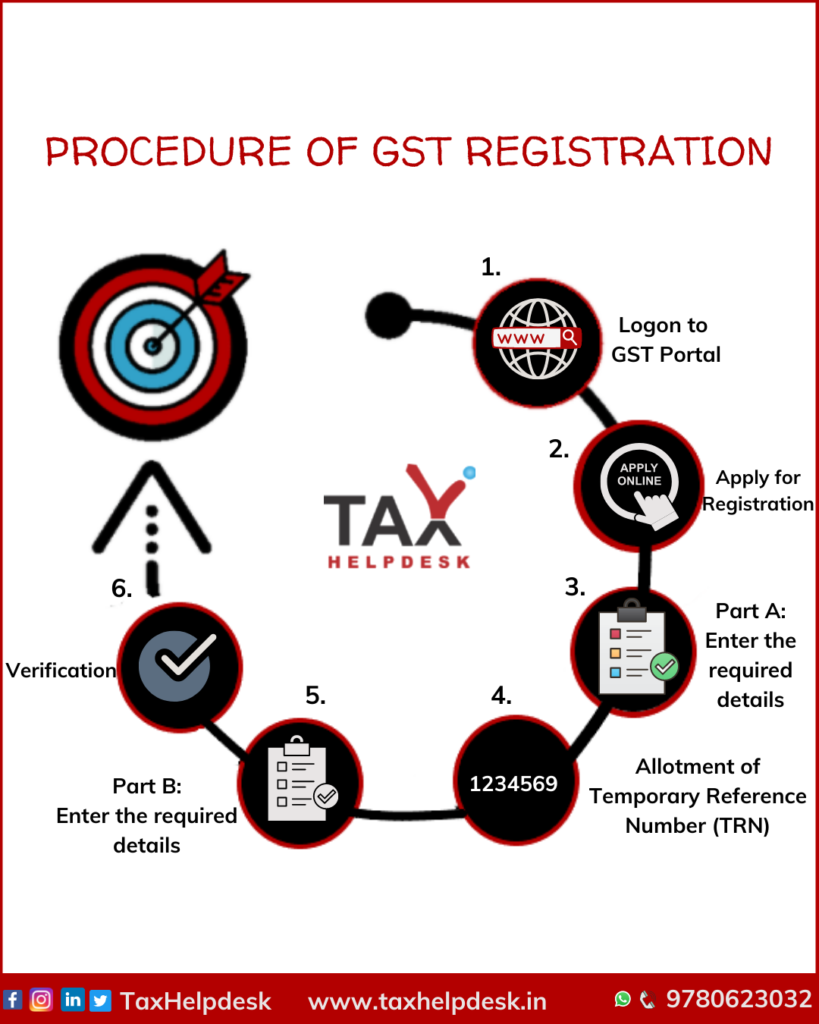Top Tips for a Smooth Singapore GST Registration Experience
Top Tips for a Smooth Singapore GST Registration Experience
Blog Article
Navigating the Intricacies of GST Enrollment: Expert Tips and Ideal Practices for Smoother Conformity
From deciphering enrollment requirements to harnessing technical tools for structured processes, the trip in the direction of smoother GST conformity is nuanced and diverse. Keep tuned to discover vital approaches and insights that can assist businesses guide via the complexities of GST enrollment with skill and confidence.
Understanding GST Registration Demands

In addition to turn over thresholds, companies involving in interstate sales or giving taxed solutions may likewise be required to register for GST, also if their turnover is below the recommended restriction (Singapore GST Registration). Recognizing these requirements and thresholds is necessary to prevent charges and make sure smooth procedures within the lawful framework
Moreover, companies have to collect and prepare the necessary documentation, such as evidence of identity, address, service incorporation, and savings account details, before initiating the GST registration procedure. Falling short to offer precise details or meet the registration due dates can cause fines or various other legal effects. As a result, businesses must stay notified regarding the specific GST registration demands appropriate to their operations to maintain conformity and avoid possible concerns.
Organizing Important Documentation
Organizations getting started on the GST enrollment procedure should meticulously assemble and arrange the vital paperwork required for entry. The crucial papers usually required for GST registration include evidence of company enrollment or address, incorporation and identity proofs of the business proprietors or companions, bank account details, proof of major workplace, and permission kinds. Guaranteeing that these records are conveniently offered and arranged can enhance the registration procedure and stop delays or denials.
To successfully arrange essential paperwork, services should produce a central system for storing and classifying the required documentation (Singapore GST Registration). Utilizing electronic storage space services can aid maintain simple access and ensure that files are securely kept. Furthermore, developing a checklist of all essential files can function as a handy device to track what has actually been collected and what is still needed for entry

Leveraging Innovation for Efficiency
Enhancing operational efficiency through technical integration is critical for contemporary services navigating the complexities of GST registration. One of the vital methods technology can aid in GST enrollment is with the usage of automated software solutions.
Additionally, technology can help with seamless interaction with tax obligation authorities. Online portals and interaction tools make it possible for services to submit files, resolve inquiries, and obtain updates in an extra efficient manner. This not only quickens the registration process yet additionally aids in maintaining reputable and clear communication with the pertinent authorities.
Furthermore, cloud-based storage space options give a secure read review system for organizations to store and access their economic information, making sure conformity with see page GST record-keeping demands. By systematizing information storage and automating processes, companies can boost their overall efficiency and accuracy in GST registration procedures.
Proactive Compliance Surveillance

To ensure reliable aggressive compliance tracking, services need to establish robust interior controls, conduct periodic audits, and take advantage of automation devices for real-time tracking of GST deals. Routine training sessions for workers on GST conformity requirements can likewise aid in developing a culture of conformity within the organization. In addition, involving with tax obligation specialists or experts can provide useful insights and assistance on browsing complex GST regulations.
Engaging With Expert Specialists
Engaging experienced tax consultants can dramatically bolster a firm's understanding and compliance with complex GST regulations. Professional consultants bring a wide range of understanding and experience to the table, helping businesses browse the intricacies of GST registration effortlessly. By leveraging their proficiency, firms can make certain precise filings, decrease the danger of mistakes, and remain up-to-date with the most up to date regulatory changes.
When engaging with expert specialists, it is necessary to choose experts with a strong performance history in GST conformity (Singapore GST Registration). Look for experts who have a deep understanding of the appropriate regulations and regulations, as well as Website experience dealing with businesses in your industry. Efficient interaction is essential in this partnership, so ensure to plainly define your assumptions and establish normal touchpoints to go over progress and deal with any kind of concerns
Furthermore, professional professionals can provide valuable insights and suggestions on maximizing your tax obligation technique, recognizing potential cost-saving possibilities, and streamlining your compliance processes. On the whole, spending in professional working as a consultant solutions can go a lengthy means in making sure smoother GST compliance and avoiding expensive blunders.
Verdict
Finally, browsing the complexities of GST enrollment calls for a complete understanding of the demands, organization of vital documentation, leveraging modern technology for performance, aggressive compliance monitoring, and engagement with expert specialists. By following these finest techniques, businesses can make sure smoother compliance with GST laws and stay clear of possible charges or fines. It is important to remain educated, aggressive, and attentive in managing GST enrollment to maintain compliance and promote monetary honesty.
To guarantee compliance with tax obligation policies, businesses should extensively understand the intricate demands for GST registration. Item and Services Tax Obligation (GST) is a value-added tax imposed on the majority of items and solutions in a nation, making it essential for organizations to sign up for GST to prevent legal effects.Additionally, companies must gather and prepare the essential documentation, such as evidence of identity, address, organization incorporation, and bank account details, prior to starting the GST registration process. Companies ought to stay educated regarding the specific GST registration needs applicable to their operations to keep compliance and prevent potential concerns.
The crucial documents generally needed for GST registration include evidence of service registration or identification, address and incorporation evidence of the company proprietors or companions, financial institution account information, evidence of primary location of organization, and authorization types.
Report this page